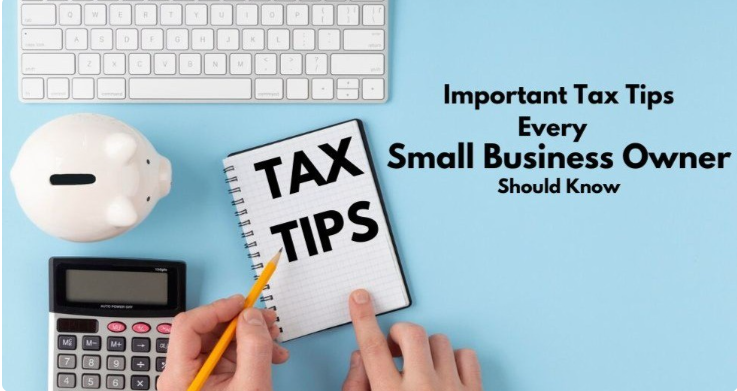Tax Tips Every Small Business Owner Should Know
Running a small business is exciting but when tax season rolls around, many entrepreneurs feel overwhelmed. Between managing expenses, filing deadlines, and staying compliant, taxes can quickly become a source of stress. The good news? With the right strategies, you can stay organized, reduce your tax burden, and avoid costly mistakes.
Here are some essential tax tips every small business owner should know.
1. Separate Business and Personal Finances
One of the most common mistakes small business owners make is mixing personal and business expenses. This not only complicates bookkeeping but can also raise red flags with tax authorities.
-
Open a separate business bank account and credit card.
-
Track all income and expenses clearly.
-
Pay yourself a salary or owner’s draw instead of dipping into business funds randomly.
2. Keep Meticulous Records
Good recordkeeping is the foundation of stress-free tax filing.
-
Save all receipts, invoices, and bank statements.
-
Use accounting software (like QuickBooks, Xero, or Wave) to stay organized.
-
Store digital copies of receipts to avoid losing important documents.
The cleaner your records, the easier it is to claim deductions and file accurately.
3. Understand Deductible Expenses
Tax deductions reduce your taxable income—and every small business should take advantage of them. Common deductions include:
-
Office supplies and equipment
-
Business travel and meals (with limits)
-
Marketing and advertising costs
-
Home office expenses (if you qualify)
-
Professional fees (lawyers, accountants, consultants)
Always check current tax laws to ensure your deductions are compliant.
4. Don’t Forget About Quarterly Taxes
Unlike employees who have taxes withheld from paychecks, small business owners often need to pay estimated taxes quarterly. Missing these payments can lead to penalties.
-
Mark payment deadlines on your calendar.
-
Estimate conservatively to avoid underpayment.
-
Work with an accountant to calculate accurate amounts.
5. Consider Your Business Structure
Your business structure (sole proprietorship, LLC, S-corp, etc.) directly affects how you’re taxed. For example:
-
Sole proprietors and single-member LLCs pay self-employment tax on all profits.
-
S-corps may help reduce self-employment taxes through salary + distributions.
If your business is growing, talk to a tax professional to see if restructuring could save you money.
6. Leverage Tax Credits
Tax credits directly reduce the amount of tax you owe. Small businesses may qualify for:
-
Research and development (R&D) credits
-
Employee retention credits
-
Work opportunity credits (for hiring certain employees)
-
Green energy incentives
Unlike deductions, which lower taxable income, credits lower your tax bill dollar-for-dollar.
7. Hire a Professional When Needed
Yes, software can help, but taxes get complicated as your business grows. An accountant or tax advisor can:
-
Maximize deductions you might overlook
-
Ensure compliance with changing tax laws
-
Save you time and reduce stress
Consider this an investment in your financial health.
Final Thoughts
Taxes don’t have to be intimidating. With solid recordkeeping, an understanding of deductions and credits, and proactive planning, you can keep more of your hard-earned money and avoid unpleasant surprises.
The key is to plan year-round—not just when tax season arrives. By staying organized and seeking professional guidance when needed, you’ll not only save money but also set your business up for long-term success.


